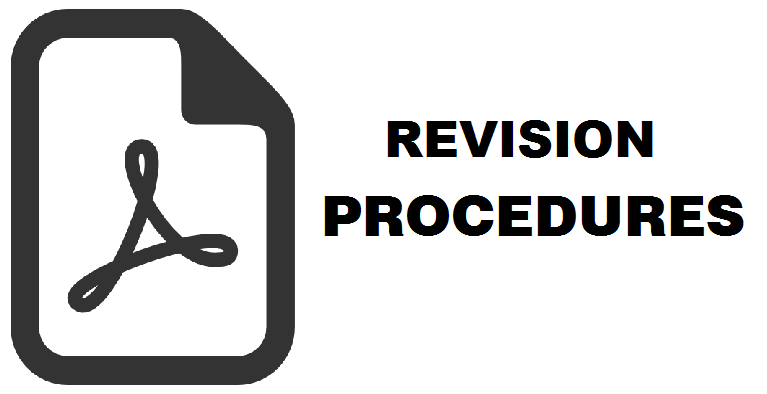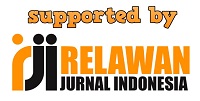Development of guided reading-based village library services and its implementation
Pawit M Yusup(1*), Ninis Agustini Damayani(2), Tine Silvana Rachmawati(3), Wina Erwina(4)
(1) Fakultas Ilmu Komunikasi Universitas Padjadjaran, Bandung
(2) Fakultas Ilmu Komunikasi Universitas Padjadjaran, Bandung
(3) Fakultas Ilmu Komunikasi Universitas Padjadjaran, Bandung
(4) Fakultas Ilmu Komunikasi Universitas Padjadjaran, Bandung
(*) Corresponding Author
Abstract
Introduction. The role of village libraries as resource centers are not widely known by the community. The village libraries have varying weaknesses in aspects of a library. The problems are the lack of human resources; less library services and promotion; insufficient collection; inadequacy of library furniture and equipment; unstable internet network; and lack of local government support. This study was a pioneer in facilitating the reading service system to support implementation of reading materials. This system was developed by village libraries through guided reading techniques.
Data Collection Method. This paper used Participatory Research Appraisal to guide the data collection process involving 15 participants.
Analysis Data. The participants were rural people living in West Java, Indonesia. Additional data were obtained through direct observations in seven village libraries in West Java. Data from informants were compiled and categorized according to their comparative aspects. The result is sequential activity design in accordance with PRA
Results and Discussions. The results showed that village libraries were not being recognized and utilized by members of the rural community.
Conclusion. They expect that the entrepreneurship activities of reading efficient technology–based books are supported by actual business practices.
Keywords
Full Text:
PDFReferences
Adimihardja, K., Hikmat, H. (2003). Participatory research appraisal: Pengabdian dan pemberdayaan masyarakat. Bandung: Humaniora.
Alam, A.and Sabir, I. (2012). Role of participatory rural appraisal in community development (A case study of Barani area development project in agriculture, live stock and forestry development in Kohat). International Journal of Academic Research in Business and Social Sciences, 2(8), 25-38.
Al Barayyan, J.K.V. (2015). The role ofthe document delivery service at an evolving researchlibrary in Saudi Arabia, Interlending & Document Supply, 43(1), 41- 46. Retrieved from https://core.ac.uk/download/pdf/33187566.pdf. September 25, 2019.
American Library Association (ALA) (2012). Extending our reach: reducing homelessness through library engagement, American Library Association, October 8, 2012. http://www.ala.org/aboutala/offices/extending-our-reach-reducing-homelessness-through-library-engagement-7 (Accessed September 19, 2019). Document ID: e61cb8e4-7e01-e454-c5e2-7ef3df4f0792
American Library Association (ALA) (2016). "New ALA report highlights libraries as engines of entrepreneurship", American Library Association, June 20, 2016. Available at: http://www.ala.org/news/press-releases/2016/06/new-ala-report-highlights-libraries-engines-entrepreneurship (Accessed August 18, 2019). Document ID: a4f6e344-be15-8af4-9550-a0df782b9e6a
Buku Data PAUDNI (2014). Direktur Jenderal Pendidikan Anak Usia Dini Nonformal dan Informal. (2014). Buku data PAUDNI tahun 2013. Jakarta: Kementerian Pendidikan dan Kebudayaan, Direktorat Jenderal Pendidikan Anak Usia Dini, Non Formal dan Informal. Retrieved from http://repositori.perpustakaan.kemdikbud.go.id/659/1/buku data 2013 230514.pdf
DISPUSIPDA JABAR. (2016). Hasil kajian budaya baca masyarakat Jawa Barat tahun 2016. Bandung: Dispusipda Jawa Barat.
Djohani, R. (2003). Partisipasi, pemberdayaan, dan demokratisasi komunitas: Reposisi participatory rural appraisal (PRA) dalam program pengembangan masyarakat. Bandung: Studio Driya Media.
Indonesian Central Statistics Agency/BPS 2017, link: http://www.bps.go.id, accessed on 27 March 2017; see also Indrajaya, Fajar Hatma (2017: 107-114).
KOMPAS.com (2016). Jawa Barat tempati Provinsi dengan Penduduk Miskin Terbanyak. Jakarta. Retrieved from https://ekonomi.kompas.com/read/2016/01/04/215349926/Jawa.Barat.Tempati.Provinsi.dengan.Penduduk.Miskin.Terbanyak
Urban Libraries Council (2019). Strengthening libraries as entrepreneurial hubs. Available at: https://www.urbanlibraries.org/initiatives/strengthening-libraries-as-hubs-for-entrepreneurship. (Accessed August 18, 2019).
Verhulst, S. (2013). Technology and economic prosperity. The Living Library. https://thelivinglib.org/technology-and-economic-prosperity/ (Accessed September 25, 2019)
Wahyudin, U. (2012). Pelatihan kewirausahaan berlatar ekokultural untuk pemberdayaan masyarakat miskin pedesaan. MIMBAR, 28(1), 55-64.
Waniganeththi, G. 2017). Role of Participatory Rural Appraisal (PRA) Tools and Techniques for Rural Development Planning. Available at: https://www.semanticscholar.org/paper/Role-of-Participatory-Rural-Appraisal-(PRA)-Tools-Waniganeththi/2eac54efc838c628361a29c0fe841ad262826064
Winoto, Y and Sukaesih (2019). Empowerment of communities through operation of village library and community reading garden (Studi tentang pemberdayaan masyarakat melalui Penyelenggaraan perpustakaan desa dan taman bacaan masyarakat). Edulib: Journal of Library and Information Science, 9(1), 79-94. Retrieved, September 25, 2019 from: http://ejournal.upi.edu/index.php/edulib/article/view/16170/pdf
Wapner, C. (2016). The people’s incubator: Libraries propel entrepreneurship. OITP Perspectives. No 3, June, 2016. avai l able at http://creati vecommons.org/li censes/by/3.0/. (Accessed August 18, 2019).
Yanto, A; Anwar, R.K.; Lusiana, E. (2017). Literasi informasi di TBM Pengelolaan Lingkungan Cibungur (Information Literacy in TBM Pengelolaan Lingkungan Cibungur). Record and Library Journal. 3(2), 189-200. Retrieved from https://e-journal.unair.ac.id/RLJ/article/view/7337/4438.
Yusup, P. M., Komariah, N. (2014). Health information seeking and use among rural poor families in West Java, Indonesia. Brazilian Journal of Information Science Research Trends, 8(1/2), 1–10. Retrieved from http://www2.marilia.unesp.br/revistas/index.php/bjis/article/view/4249
Yusup, P. M., Subekti, P. & Rohanda, R. (2016). Contextual analysis of the rural poor experience in relation to limitations of livelihood information access. Brazilian Journal of Information Studies: Research Trends, 10(3), 1–8. Retrieved from http://www2.marilia.unesp.br/revistas/index.php/bjis/article/view/5549Article Metrics
Refbacks
- There are currently no refbacks.
Copyright (c) 2019 Berkala Ilmu Perpustakaan dan Informasi

This work is licensed under a Creative Commons Attribution-ShareAlike 4.0 International License.












